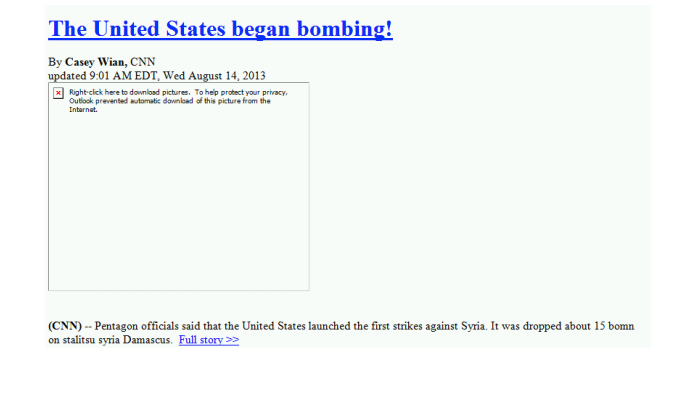A new phishing attack targeting outdated Adobe Reader and Java versions is being disseminated in the form of a fake CNN alert email claiming that the U.S. has bombed Syria.
img/source: Threatpost
This one is easy to spot because 1. The U.S. has not actually bombed Syria, and 2. As is the habit of many malware authors, the grammar is atrocious. For instance, the tagline says, "It was dropped about 15 bomn on stalitsu syria Demascus.” If a CNN writer actually wrote that, I'm Santa Claus. Notably however, Casey Wian is an actual CNN reporter, so they did get that right.
Keep an eye out for this threat, and don't let it try to trick you into opening the link.
Login to the community
No account yet? Create an account
Enter your E-mail address. We'll send you an e-mail with instructions to reset your password.




